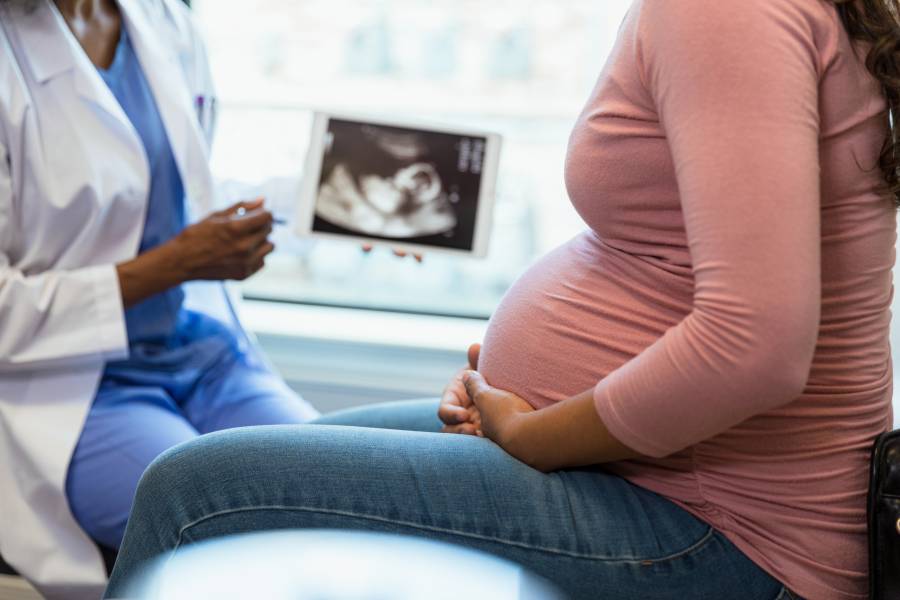UAMS Awarded $15 Million for Study Comparing Approaches to Postpartum Care

[ad_1]
| FAYETTEVILLE — A research team at the University of Arkansas for Medical Sciences (UAMS) has been approved for a five-year, $15 million funding award by the Patient-Centered Outcomes Research Institute (PCORI) to study the best mechanisms for postpartum follow up with new mothers to reduce maternal mortality and morbidity.
Maternal mortality rates in the United States are steadily rising. According to the Centers for Disease Control and Prevention (CDC), 1,205 women died of maternal causes in the United States in 2021, compared with 861 in 2020 and 754 in 2019. The United States has a higher maternal mortality ratio than most other high-income nations, with more than half of maternal deaths occurring postpartum after hospital discharge.
The UAMS study will address critical gaps in knowledge about how best to deliver comprehensive postpartum care that ensures timely identification and treatment of complications and meets the needs and preferences of diverse patients including disproportionately impacted racial groups and rural residents.
The study will compare two postpartum care models — the Telehealth Multicomponent Optimal Model (Telehealth MOM) and enhanced standard of care — by conducting a comparative evaluation with 1,500 low-income and racially/ethnically diverse women. Eligible patients will be pregnant women 18-44 years of age and will include women who speak English, Spanish or Marshallese.
“The predominant model of care following discharge from delivery is an in-person visit scheduled around six weeks postpartum,” said Jennifer Callaghan-Koru, Ph.D., MHS, one of the principal investigators on the study and an associate professor in the UAMS Department of Internal Medicine. “However, most postpartum maternal morbidity happens within the first six weeks after delivery, often within the first two weeks. Therefore, care at six weeks or later may be too late to prevent severe maternal morbidity and mortality.”
Telehealth MOM postpartum care includes an early telehealth visit between 10 and 14 days postpartum and remote patient monitoring of blood pressure for 14 days, in addition to the standard comprehensive postpartum visit.
Patients randomly assigned to the Telehealth MOM arm of the study will be provided a remote monitoring blood pressure cuff and will be instructed to take their blood pressure twice per day. Blood pressure readings from the remote monitoring devices will be transmitted automatically via built-in cellular technology to the patient’s providers. A registered nurse will monitor blood pressure readings over the 14-day period and will contact the patient if the readings are out of range to discuss symptoms and recommend a course of action.
The study will take place through UAMS’ Rural Research Network, which was established in 2020 by Pearl McElfish, Ph.D., MBA, the other principal investigator on the study and division director of the UAMS Office of Community Health & Research.
Callahan-Koru and McElfish will lead all engagement activities. Callahan-Koru has six years of engagement experience, and McElfish has 25 years of engagement experience and is a national and international expert in community, patient and stakeholder engagement with more than 100 articles on the art, science and practice of engagement.
“Results from this study have great potential to benefit the quality of postpartum care received by women in the United States,” McElfish said. “Given the importance of early detection and treatment of complications in the postpartum period for reducing maternal mortality and morbidity, this study fills a critical gap in knowledge for clinical decision-making.”
The UAMS study was selected through a PCORI funding announcement specifically focused on research to assess the comparative clinical effectiveness of multicomponent strategies to improve early detection of, and timely care for, complications up to six weeks postpartum for Black, American Indian/Alaska Native, Hispanic, rural, and low socioeconomic status populations.
While various strategies to improve postpartum care and outcomes and advance health equity have been recommended and/or implemented by professional organizations, health systems and clinicians, questions remain about how to best tailor multicomponent interventions to improve and optimize care for populations that are most often underserved and/or experiencing the greatest disparities in health outcomes.
“This study was selected for PCORI funding for its potential to answer the need for real-world evidence to enable optimal use of multicomponent strategies to improve care among populations at increased risk of postpartum maternal mortality, severe maternal morbidity, or pregnancy complications,” said PCORI Executive Director Nakela L. Cook, M.D., MPH. “We look forward to following the study’s progress and working with UAMS to share the results.”
PCORI is an independent, nonprofit organization authorized by Congress in 2010. Its mission is to fund research that will provide patients, their caregivers and clinicians with the evidence-based information needed to make better informed health care decisions. For more information about PCORI’s funding, visit www.pcori.org.
The Rural Research Network is supported by the UAMS Translational Research Institute, which is funded by the National Center for Advancing Translational Sciences of the National Institutes of Health, Clinical and Translational Science Award UL1 TR00317.
UAMS is the state’s only health sciences university, with colleges of Medicine, Nursing, Pharmacy, Health Professions and Public Health; a graduate school; a hospital; a main campus in Little Rock; a Northwest Arkansas regional campus in Fayetteville; a statewide network of regional campuses; and seven institutes: the Winthrop P. Rockefeller Cancer Institute, Jackson T. Stephens Spine & Neurosciences Institute, Harvey & Bernice Jones Eye Institute, Psychiatric Research Institute, Donald W. Reynolds Institute on Aging, Translational Research Institute and Institute for Digital Health & Innovation. UAMS includes UAMS Health, a statewide health system that encompasses all of UAMS’ clinical enterprise. UAMS is the only adult Level 1 trauma center in the state. UAMS has 3,240 students, 913 medical residents and fellows, and five dental residents. It is the state’s largest public employer with more than 11,000 employees, including 1,200 physicians who provide care to patients at UAMS, its regional campuses, Arkansas Children’s, the VA Medical Center and Baptist Health. Visit www.uams.edu or uamshealth.com. Find us on Facebook, Twitter, YouTube or Instagram.
###
[ad_2]
Source link

